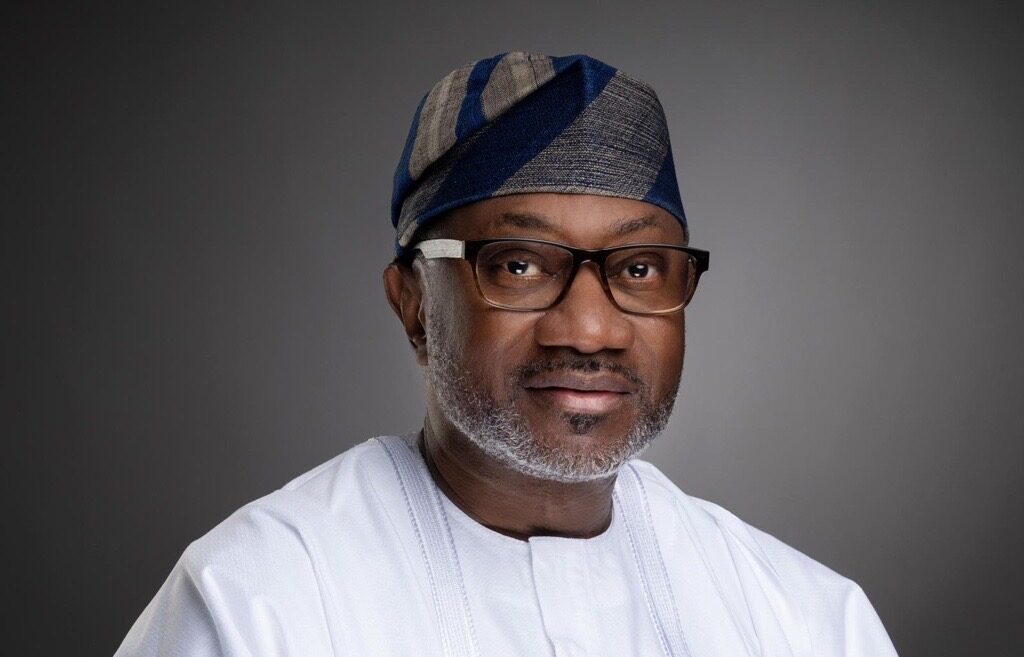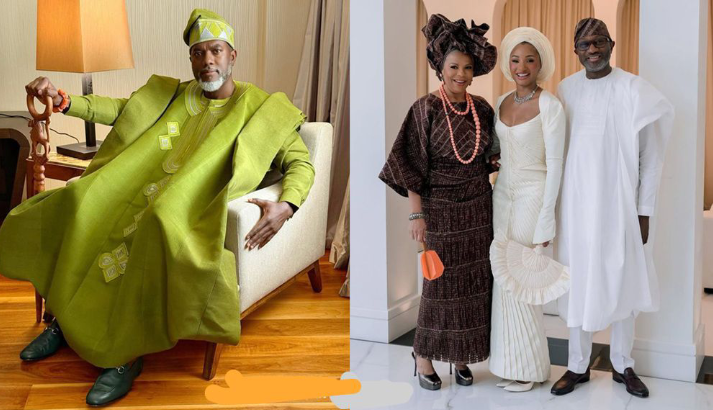
“Money You Don’t Spend Isn’t Yours, Life Is for the Living” — Femi Otedola Sparks Nationwide Debate with Bold 2025 Declaration

Nigerian billionaire businessman Femi Otedola has once again set social media and mainstream media ablaze with a thought-provoking declaration that has quickly evolved into a nationwide conversation. Speaking during a recent interactive session that blended business, philanthropy, and lifestyle reflections, Otedola boldly stated, “Money you don’t spend isn’t yours, life is for the living.” The statement, simple yet piercing, has resonated with millions while also stirring heated arguments about wealth, responsibility, generational planning, and the philosophy of life itself.
Otedola, a household name in Nigeria and beyond, is not only known for his oil and energy empire but also for his philanthropic endeavors and public lifestyle that often embodies the mix of luxury and generosity. His words, however, did not come in the typical setting of a flashy party or a grand boardroom presentation but in a reflective tone that seemed to underline years of experience with wealth and life’s fleeting nature. The quote has since gone viral across X, Instagram, and TikTok, with millions of Nigerians and global followers reacting, reposting, and dissecting every angle of the remark.
For many, the statement is a timely reminder that life is short and uncertain, and hoarding wealth for the future without enjoying the present is a wasted effort. Numerous young Nigerians quickly latched on to the quote, using it to justify luxury purchases, impromptu vacations, and even everyday indulgences. Memes began flooding social media timelines within hours of Otedola’s words making the rounds, with captions such as “Otedola said it, not me” appearing under photos of people dining in expensive restaurants or shopping for designer wear they previously considered beyond their budget. The sentiment of “YOLO” (You Only Live Once) found new life in Nigeria, this time with a billionaire’s endorsement.
However, as with many powerful declarations, the statement has also ignited criticisms and debates from other angles. Financial analysts and personal finance coaches were quick to caution the public against misinterpreting the quote as an excuse for reckless spending. They argued that while Otedola may emphasize the importance of enjoying life, he does so from the standpoint of a man who has already built sustainable wealth across generations. Critics noted that for an average Nigerian struggling with inflation, unstable power supply, unemployment, and the high cost of living, the idea of “money you don’t spend isn’t yours” could encourage unsustainable financial habits. They stressed that saving, investing, and planning remain essential, and life enjoyment must be balanced with financial prudence.
Nonetheless, supporters of Otedola’s outlook point to the cultural weight of his words. In a country where many people delay happiness in pursuit of an uncertain future, the statement seems to cut through years of societal conditioning. It challenges the idea of endless sacrifice without enjoyment and highlights the dangers of deferring joy until retirement or old age. In fact, older Nigerians have also chimed in, reflecting on how many of their peers spent decades working hard, only to pass away before reaping the rewards of their labor. Stories have surfaced online of parents who left vast estates and savings behind but never got to enjoy them, leaving their children to spend what they themselves had denied. Otedola’s words have therefore touched a nerve in a society where mortality and unpredictability are realities that cannot be ignored.
Interestingly, this is not the first time Otedola has stirred conversations with his philosophy on wealth. Years back, he had openly spoken about giving his children the freedom to pursue their passions without the burden of sustaining his empire. He has also been public about his large charitable donations, from covering hospital bills to supporting education initiatives. To many, his lifestyle demonstrates a balance of luxury and impact, suggesting that his words are not merely about reckless indulgence but a philosophy of purposeful spending. By spending money—whether on oneself, loved ones, or causes—he argues that wealth becomes truly valuable. Otherwise, money hoarded in accounts or tied up in assets becomes meaningless at the end of life.
The generational divide has also played a strong role in the reactions. Gen Z and Millennials, who are known for valuing experiences, self-expression, and lifestyle over traditional wealth accumulation, have embraced the quote wholeheartedly. Many see it as validation of their outlook on life: travel while you can, buy what makes you happy, and don’t defer joy until old age. On the other hand, older generations—particularly Baby Boomers and Gen X Nigerians who lived through harsher economic climates—view the statement with caution. They interpret Otedola’s words as a reminder to live meaningfully but not necessarily an excuse to neglect long-term planning.
The timing of the statement has also made it particularly impactful. Nigeria, like much of the world, is experiencing economic uncertainty in 2025, with inflation hitting households hard and the naira fluctuating against the dollar. Many people are already grappling with the reality that saving money feels like storing water in a leaking bucket. In such a climate, the phrase “money you don’t spend isn’t yours” carries even more weight, as citizens question the value of storing money that continuously loses purchasing power. For some, Otedola’s words justify living in the moment since tomorrow’s naira might be worth far less than today’s.
Beyond economics, the statement also sparks philosophical questions about legacy. Should wealth primarily be enjoyed by its earner, or should it be preserved for children and grandchildren? Nigerians are culturally inclined toward building legacies and leaving inheritances, but Otedola’s words seem to challenge this narrative by suggesting that one’s first responsibility is to oneself and the present. This has made the debate not just financial but cultural and moral, pitting the values of self-fulfillment against the deeply rooted ethos of sacrifice for family.
As the conversation rages on, one thing is clear: Femi Otedola has once again managed to capture the nation’s imagination with a single sentence. Whether seen as a call to reckless enjoyment or a deeper reminder of life’s fleeting nature, the phrase has already entered the Nigerian lexicon of memorable quotes. Like past sayings from prominent figures, it will likely be repeated, debated, and referenced for years to come.
Ultimately, Otedola’s declaration forces Nigerians—and indeed the global audience—to reflect on a question that transcends wealth: What does it mean to truly live? Is life about accumulating riches for a distant future, or is it about embracing the present and spending in ways that create joy, memories, and impact? In answering this, each individual is left to strike their own balance between responsibility and enjoyment, between legacy and living. But regardless of where one falls, it cannot be denied that in just ten words, the billionaire has sparked a profound national conversation that may change the way people think about money, wealth, and life itself.


